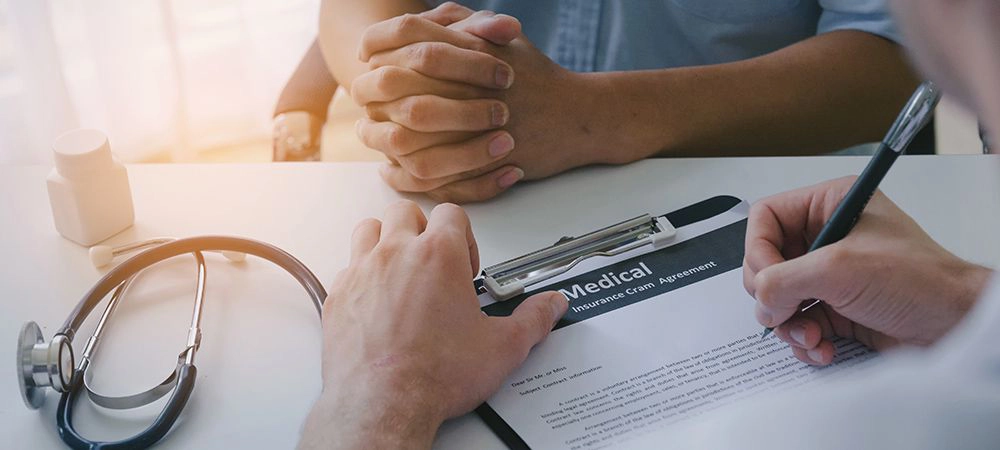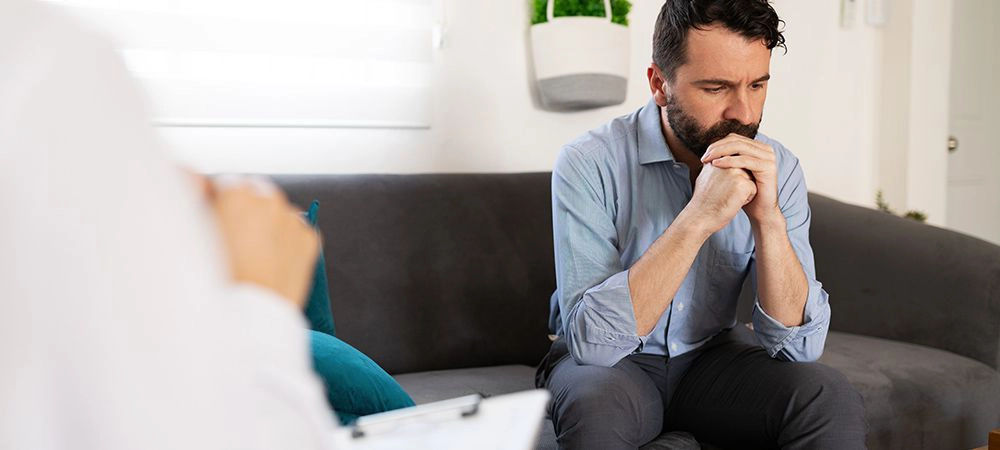About 8% of the Canadian adult population will experience major depression at some point in their lives. Thankfully, help is available in the form of depression treatment, but do you know what to expect from it?
Depression treatment is a comprehensive therapy that encompasses. In this blog, we’ll
what happens during inpatient depression treatment.
To start with, depression is not a disease that you can contract by coming in contact with a disease-bearing organism. Yes, it has some traits which mean people can classify it as a disease. For example, it will affect your health, it has symptoms and you can treat it.
What you can expect during depression treatment depends on the treatment program you opt for. Each of the treatment types comes with different expectations. Here, we’ll be dealing with the inpatient treatment for depression and what to expect from it.
But before that, let’s look at some things you should know about depression. This will help identify if you or someone close to you has depression and needs help. It will also help you know how depression treatment happens as well as the different stages of treatment.
How To Know If you Have Depression
1 in every 5 Canadians will experience mental health problems in their lifetime. However, not all these ailments are depression or results of depression. That doesn’t mean that they can’t lead to or cause depression though. There are many causes of depression, but let’s not go into that now.
Depression is a mental disorder that’s characterized by constant sullen moods and lack/loss of interest in otherwise interesting activities. Depressed individuals exhibit behavioural patterns that are often the opposite or very different from their character.
Most times, the change is gradual and it sometimes accompanies a withdrawal from their immediate social community. This doesn’t imply withdrawing from the community automatically makes you a depression patient. It’s just one of the symptoms to watch out for.
Many people suffer from depression but do not realize it until it is very late. The common mistake most people make is that they disregard depression symptoms as stress symptoms.
While stress itself is a major cause of depression, it’s important to differentiate between stress and depression. For example, stress rarely ever leads to withdrawal from others but depression often does.
You may be suffering from depression if you notice the following changes in your behaviour, habits or moods.
- Persistent downtime and feelings of sadness, emptiness or worthlessness.
- Lack/loss of interest in your favourite activities. You just don’t find happiness in things like you used to.
- Sleeping disorder. You’re either constantly having trouble falling asleep, staying asleep or waking up from sleep.
- Appetite and diet changes. You’re overeating, consuming too much junk and sugary foods. It seems like food is the only thing that can lift your spirits for a bit.
- Lacking energy or motivation. You find it difficult to do activities that will be otherwise simple to complete. This may also be a symptom of stress,
- Recurring thoughts of death/ dying. Now, this is the peak of it, if you’re having these thoughts, get help ASAP!!
Not all depression patients exhibit these behaviours, moods or attitudes. Some people seem just fine on the outside and relate well with people but they’re dying on the inside. That’s the most dangerous kind of depression. Like cancer, it will keep eating away at you until nothing is left and nobody else will know about it.
Stages of depression and appropriate treatment
There are 5 main stages to categorize and explain the experiences of people going through a depressive phase.
- Denial and Isolation: This is a very short stage that occurs during the early phases of depression. In most cases, it doesn’t last long. Some people don’t even go through the stage and you may also not experience it.
During this stage, you’ll refuse to accept that you’re falling into depression. You’ll find excuses and reasons to label it as something else that’s not depression. The best treatment at this stage is therapy: talk to a professional who can help.
- Anger and hate to oneself or the world. At this stage, you either begin to hate yourself or the people around you. You hate and blame them for making you feel how you feel. You blame the world for making you go through your current phase. The best treatment at this phase is also therapy; talking to a professional.
- At this stage, the depression starts to gain a voice and take a life form of its own. Your thoughts and habits begin to change drastically. At this stage, you start to exhibit some of the symptoms of depression. The best help at this stage is therapy with light medication and monitoring.
- At this stage, the depression has a hold on you and it’s becoming more noticeable. The changes in behaviour, mood and attitude are more frequent now. You will be exhibiting most of the symptoms of depression. At this stage, a proper visitation to a doctor will be the best course of action.
- At this stage, you’re having thoughts about harming yourself. Suicidal thoughts linger in your mind and you can’t seem to keep them out. This is where you realize that you are in depression and you need help to get out. At this stage, you should check in to an inpatient depression treatment facility for help.
Do you need inpatient depression treatment?
If you don’t know what to expect from inpatient depression treatment or if you should go for it, here’s what we think. Inpatient treatment is best for people whose depression is leading to self-harming and other compulsive habits.
Of course, it doesn’t have to become that bad before you go for inpatient treatment. But should opt for inpatient treatment if it’s that bad.
Related Article: Depression: Symptoms, Causes, Cost of Treatment
How Does Inpatient Depression Treatment Work?
If you’re getting inpatient depression treatment in Toronto, you’ll be staying at the treatment facility for the period of treatment. Even after your treatment program is complete, your therapist may still require you to check in from time to time after the treatment. They do this to ensure that you do not relapse and fall back into depression.
The depression treatment facility will provide accommodation for you during your treatment. Most facilities also take care of feeding their patient. However, some do not. If this is the case, you’ll need to figure out your feeding by yourself. Rest assured, such treatment centers often have cafeterias where patients can easily purchase food.
For the period of treatment, the facility will assign a nurse or doctor to you who will be in charge of your treatment. Different doctors will handle your treatment intermittently during different stages of depression treatment. But your assigned nurse will always be responsible for you till the facility discharges you. Think of them as your caregivers.
What to Expect from Depression Treatment
You’re probably skeptical about what to expect from the depression treatment program. There’s no need to be, it’s just like visiting any other clinic or hospital. You’ll speak to specialists and they’ll recommend treatments for you. Then with your consent, they’ll begin to administer the treatment.
Here are some hints on the depression treatment plans and what you can expect during each one.
Medication

During inpatient treatment for depression, you can expect your caregivers to administer some medications. These are mostly drugs such as antidepressants to help keep your moods up. Depending on the stage of your depression, your prescribed medication may be light. It may also be heavy and intensive if your depressive symptoms are severe.
Please note that medication is only a part of the whole treatment and is not enough to cure depression. While medications keep the mood up, it’s important to tackle the cause of the depression itself. Nonetheless, medication is an integral part of inpatient depression treatment. Your caregiver will know the best medication for you and administer them appropriately.
Diet change
You tend to eat more when you’re going through depression. The sad part is that most of the items you consume are junk, soda and other unhealthy food items. Mostly, you do this because you find comfort in eating sugary and sweet food. The sugar rush often helps to get your mood up while you’re consuming it but it never lasts.
Now, this habit can lead to a major problem. You may start to gain weight and become obese. Since you’re going out less and you’re consuming way too many carbs and sugar, your body stores up the fat. If this is the case, specialists will have to work on this problem in addition to treating your depression. Obesity can contribute to depressive thoughts especially when you start feeling uncomfortable in your body.
Expect the doctors to change your diet to a more healthy one to enable you to shed weight. You can forget about sugary foods and junk. Expect more vegetables and water as well as food items that dieticians recommend for depression patients. You should also expect to exercise more and engage in workout activities.
Therapy
Anyone who knows what to expect during inpatient depression treatments knows that therapy is the core of it. Therapy aims to tackle the source of the problem and solve it from the root. It’s the actual cure for most types of depression.
There are three major categories of therapy available for depression treatment. They include:
Group therapy
Group therapy is a type of psychotherapy in which one or more therapists work with a group of people needing therapy at the same time. This group of people may or may not have the same problems.
They all come together at the same time to discuss their problems and talk with the therapist. During inpatient treatment, you can expect to partake in group therapies with other patients and one or more therapists.
Individual therapy
During the initial and the final stages of your depression treatment, you’ll be subject to one-on-one talks with a therapist. It is an important part of your treatment.
During these one-on-one sessions, you’ll be able to discuss personal issues with the therapist. Most of the time, individual therapy is the gateway to uncovering the cause of your depression.
Alternative therapy
There are different types of alternative therapies that inpatient treatment facilities offer. They may offer music therapy, yoga and so on. All these are not parts of the basic treatments that small-scale facilities offer. But they’re part of what to expect from inpatient depression treatment at luxury facilities.
Lifestyle change
This is another part of what to expect from depression treatment. Lifestyle patterns may cause depression in some people. For example, people who abuse substances or are involved in crimes may have depression tendencies. During inpatient treatment, you’ll learn to adopt a new lifestyle and do away with your old ways.
Detox
If one of the causes of your depression is substance abuse, you will have to undergo detoxification. This is a crucial treatment for depression patients with a history of substance abuse. It is a process of freeing addicts from their addiction and getting them to stop depending on substances.
Related Article: Depression Treatment: 7 Effective Tips For Coping
Conclusion
You should know what to expect from depression treatment before opting for it. During inpatient treatment, expect to take prescribed medications and undergo counselling spellings. You can also expect the treatment to influence your lifestyle and diet. Overall, you’ll come back a different person from the one who began the treatment program.
If you’re looking for an inpatient treatment facility for depression, we’ve got you covered. Check out our first-class depression support classes for help. Here at Addiction Rehab Toronto, we also offer consultation and advice to people who need help. Contact us today, let’s help you out of that depression.








